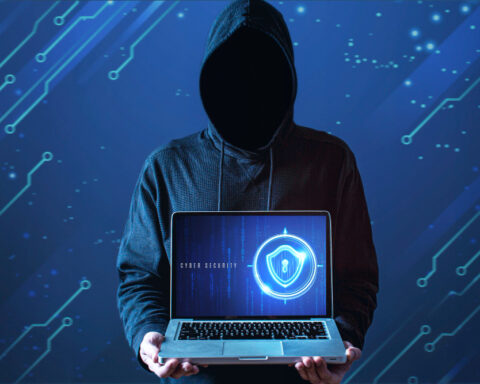Have you ever thought about how experts solve mysteries hidden in our computers and phones? Welcome to the world of computer forensics! It’s like being a detective, but instead of looking for clues at a crime scene, you find them in digital data. In this guide, we’ll introduce you to computer forensics, explain why it’s so important, and discuss how computer forensics courses can help you become a pro in this field. Let’s start our journey into this exciting world where technology helps solve mysteries!
What is Computer Forensics?
Computer forensics is the practice of collecting, analyzing, and reporting on digital data in a way that is legally admissible. It involves the application of scientific methods to gather and scrutinize data from computer systems, networks, and digital devices, ensuring the integrity of the evidence collected as well as its relevance to the case at hand.
In the realm of law enforcement and legal systems, computer forensics plays a pivotal role. It is used for a range of purposes, from criminal investigations to discovering digital footprints in corporate frauds. The precision and efficacy of computer forensics have made it a cornerstone in modern investigative processes.
The Rising Demand for Computer Forensics
As technology evolves, so does the landscape of cybercrime and digital fraud. This evolution has led to a growing demand for skilled professionals in the field of computer forensics. Individuals equipped with the expertise to navigate complex digital landscapes are increasingly sought after. This demand underlines the importance of computer forensics courses, which are designed to equip individuals with the necessary skills and knowledge.
Understanding Computer Forensics Courses
Computer forensics courses offer a comprehensive curriculum covering various aspects of digital forensics. These courses are structured to provide both theoretical knowledge and practical skills. Key areas of focus include understanding the legal aspects of digital evidence, mastering data recovery techniques, and learning about the latest tools and software used in the industry.
These courses are suitable for a variety of individuals, from law enforcement officers to IT professionals and legal experts. The interdisciplinary nature of computer forensics means that it draws on aspects of law, computer science, and ethics, making it a fascinating field of study.
Key Concepts in Computer Forensics
Data Preservation: One of the fundamental principles of computer forensics is ensuring the integrity and preservation of data. This includes proper handling and storage of digital evidence to prevent tampering or loss.
Data Recovery: Computer forensics experts must be adept at recovering data that may have been deleted, damaged, or otherwise manipulated. This requires a deep understanding of various file systems and data storage technologies.
Analysis: Analyzing digital evidence involves a careful examination of data to draw meaningful conclusions. This might involve piecing together fragmented information to form a coherent narrative.
Reporting: The ability to create clear, concise, and accurate reports is crucial. These reports often form the basis for legal proceedings and must be understandable to individuals without technical backgrounds.
The Role of Ethics in Computer Forensics
Ethics plays a central role in computer forensics. Professionals in this field must adhere to strict ethical guidelines, ensuring that their work respects privacy laws and the rights of individuals. Ethical considerations are a key component of computer forensics courses, emphasizing the responsibility of professionals in handling sensitive data.
Career Opportunities in Computer Forensics
For those pursuing a career in computer forensics, the prospects are broad and varied. Roles can range from forensic analysts and investigators to consultants and legal advisors. With the rise in cybercrime, the demand for experts in computer forensics is expected to grow, offering a rewarding and challenging career path.
Conclusion
Computer forensics is a field that combines technical skill with legal acumen and ethical responsibility. For beginners interested in this exciting domain, computer forensics courses offer a valuable gateway to gaining the necessary expertise. The role of computer forensics in today’s digitalized world cannot be overstated, making it a vital and intriguing field for those interested in the intersection of technology, law, and security.
Final Thoughts
In summary, computer forensics stands as a testament to the evolving nature of crime and technology. It is a field that not only requires technical proficiency but also a keen understanding of legal frameworks and ethical considerations. For those at the beginning of their journey in computer forensics, the path is challenging but immensely rewarding, opening doors to a world where digital expertise meets the pursuit of justice.
FAQs
Q: What exactly is computer forensics?
A: Computer forensics is a specialized field where technology is used to recover, analyze, and present data from computers and other digital devices. It’s like digital detective work that helps in solving crimes and understanding complex digital incidents.
Q: Who should consider taking a computer forensics course?
A: Anyone interested in the intersection of technology and law should consider a computer forensics course. It’s particularly beneficial for IT professionals, law enforcement personnel, legal practitioners, and anyone curious about digital investigations.
Q: What are the key skills I will learn in a computer forensics course?
A: In a computer forensics course, you will learn a range of skills including data recovery, analysis of digital evidence, understanding legal and ethical issues, and how to prepare reports that can be used in legal contexts.
Q: How important is computer forensics in today’s world?
A: Computer forensics is extremely important today as it plays a crucial role in solving cybercrimes and digital fraud. With the increase in digital data and reliance on technology, computer forensics experts are essential in both law enforcement and corporate settings.
Q: Are there any prerequisites for enrolling in a computer forensics course?
A: While specific prerequisites can vary by course, generally a basic understanding of computers and an interest in investigative processes are helpful. Some advanced computer forensics courses might require prior knowledge in IT or law, but many are designed for beginners.






